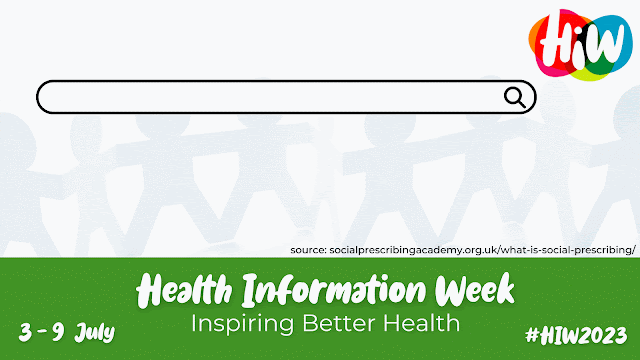Today you can learn about social prescribing.
What is social prescribing?
These
resources will help you to understand what social prescribing is:
Start with this short
animation:
Find out more from the National Academy for Social Prescribing.
NHS
England have a series of videos and written case studies featuring professionals and
individuals on their experiences of social prescribing. You can see what it
looks like in practice.
You
can learn more about social prescribing within the NHS and its impact on
personalised care from the NHS England website.
Read
the in-depth explainer from The King’s Fund for more information.
This
document, Social
prescribing: applying All Our Health, from the UK government explain how to
promote social prescribing in healthcare practice.
For information of what is happening locally check
the Support Staffordshire website. Support Staffordshire work with local
primary care groups to deliver social prescribing opportunities.
Does it work? The joint Keele
/ NHS CAT group has investigated the question: Is there evidence to show
that participation in walking groups can benefit health outcomes? Here’s
a report of what they found.
Looking for more resources on the Internet?
Remember to
check the quality of the information sources you find. Complete our tutorial Evaluating
information on the Internet. Use this checklist for a simple and quick
evaluation of information.
Need more help?
Get in touch with the Health Library if you need any help accessing
resources or finding the right information.

Comments
Post a Comment